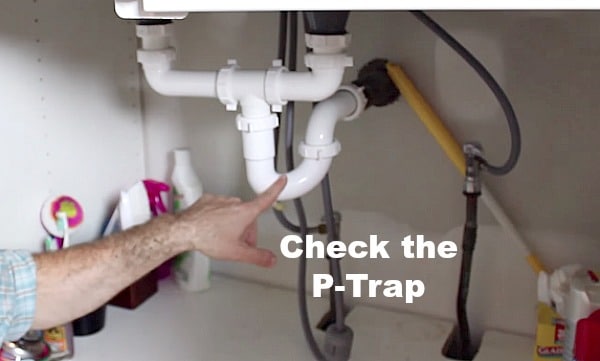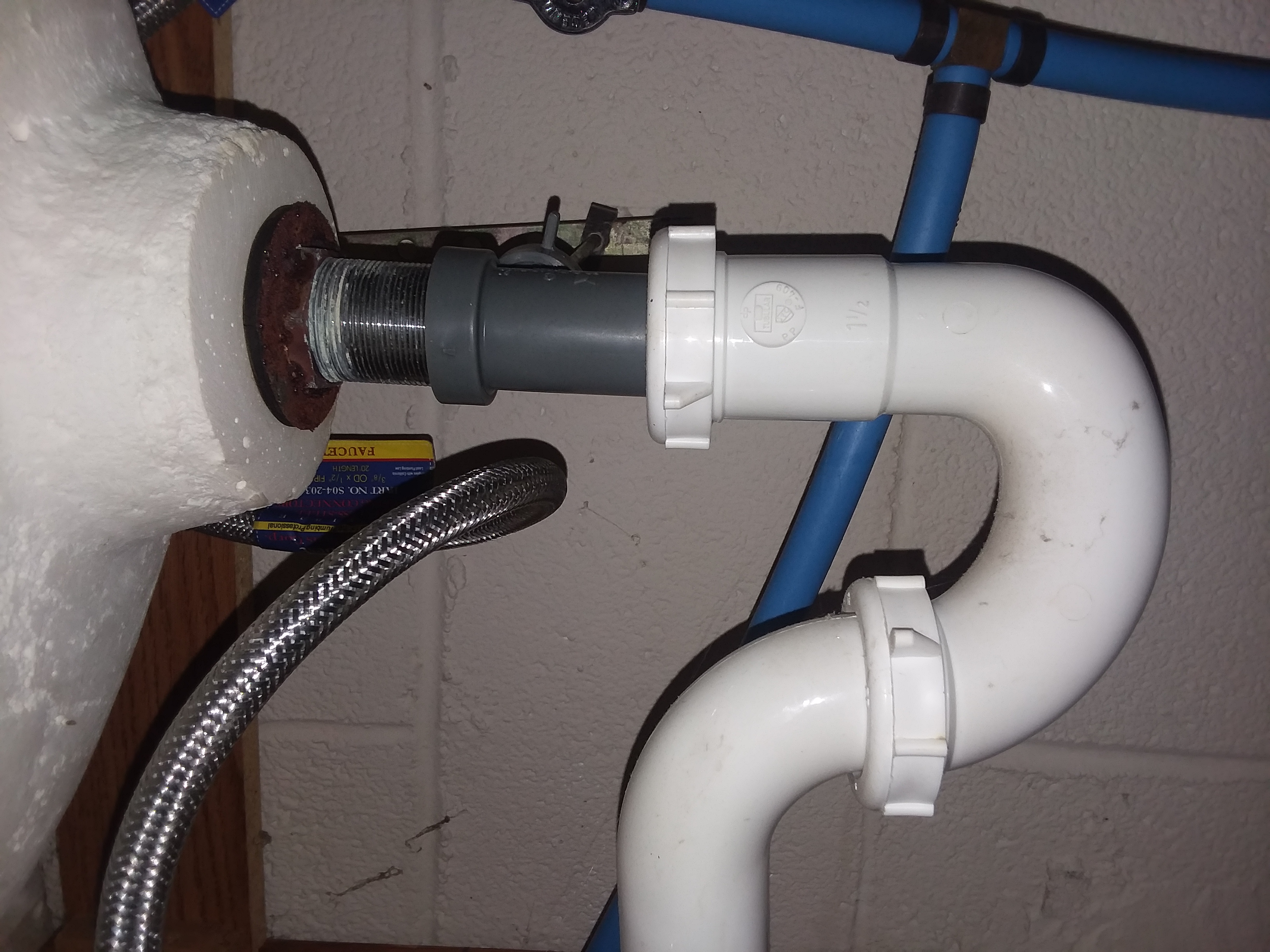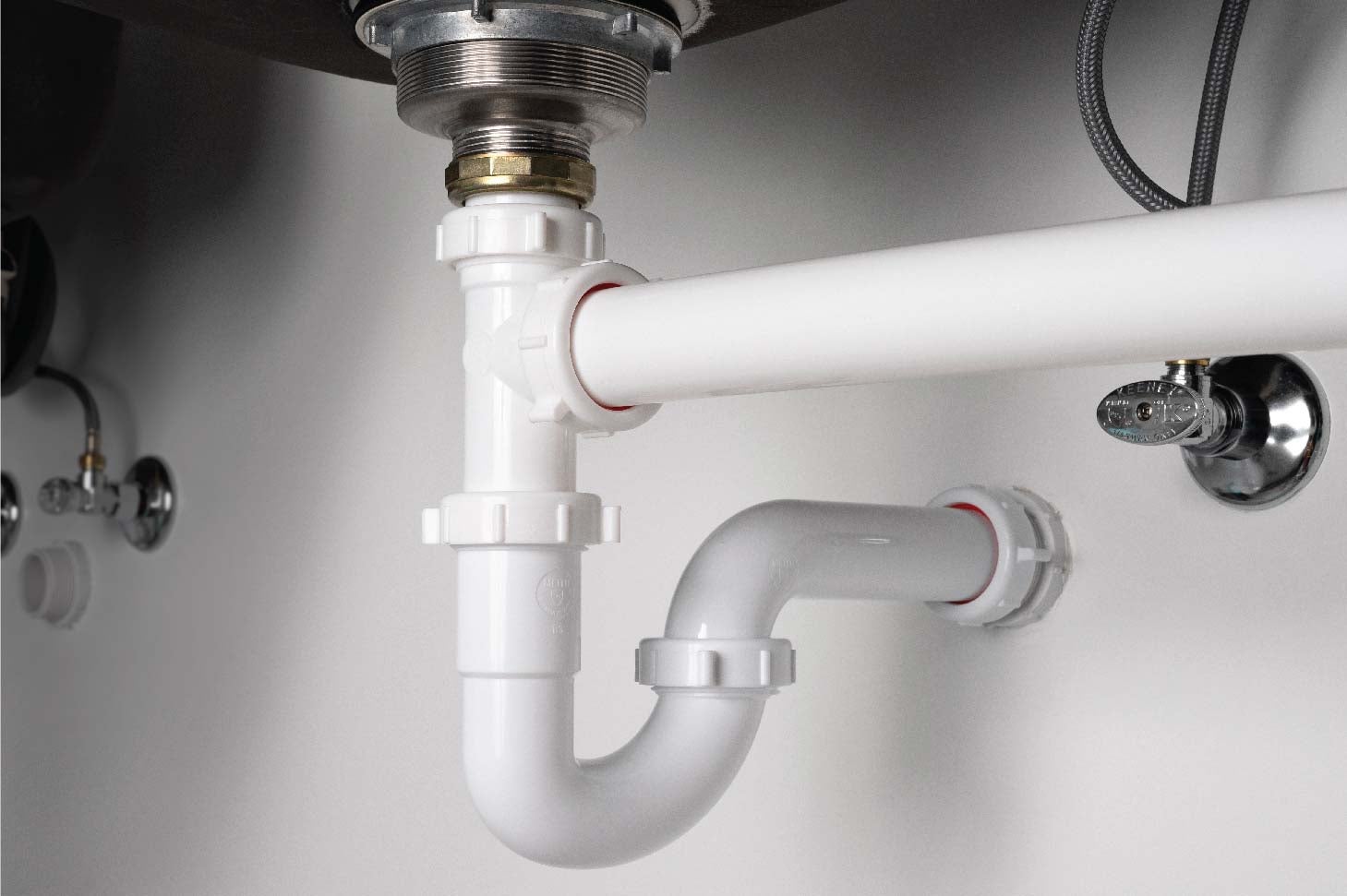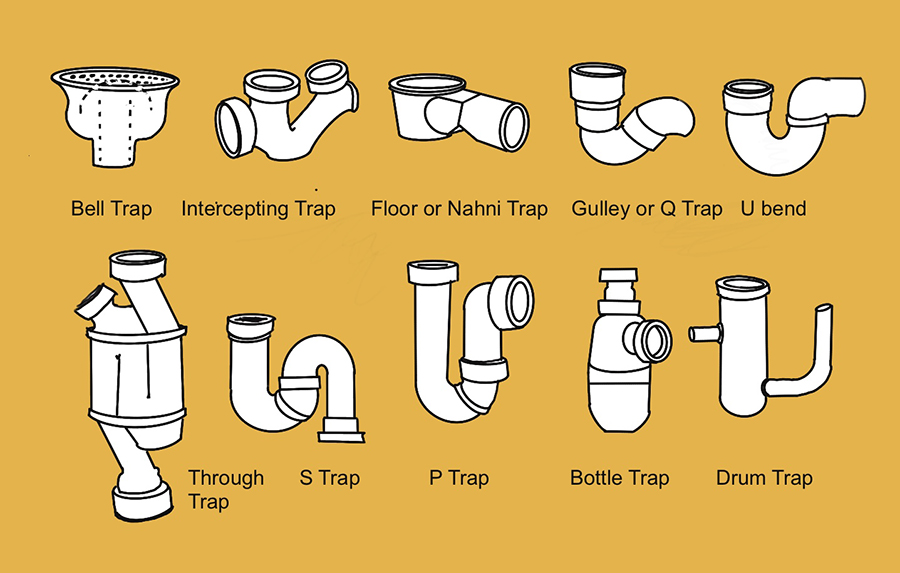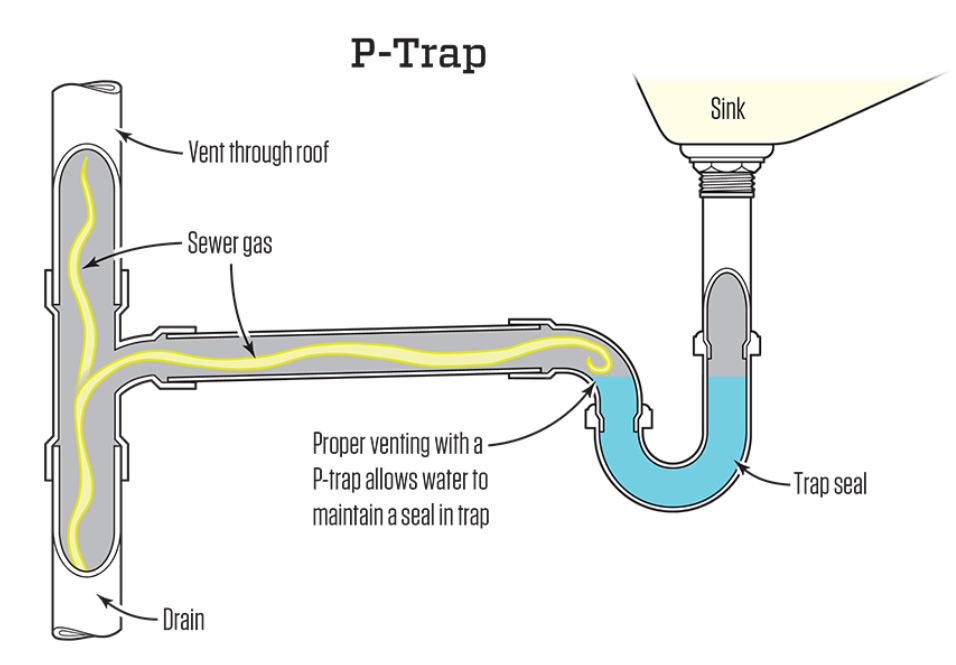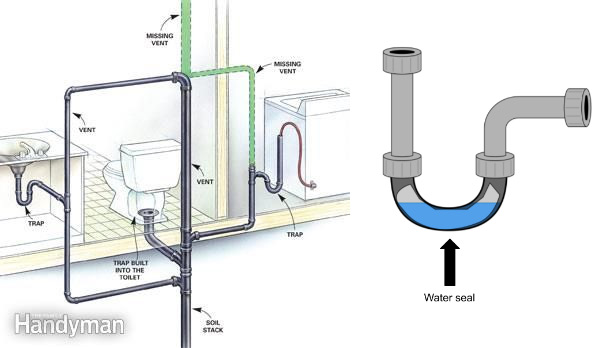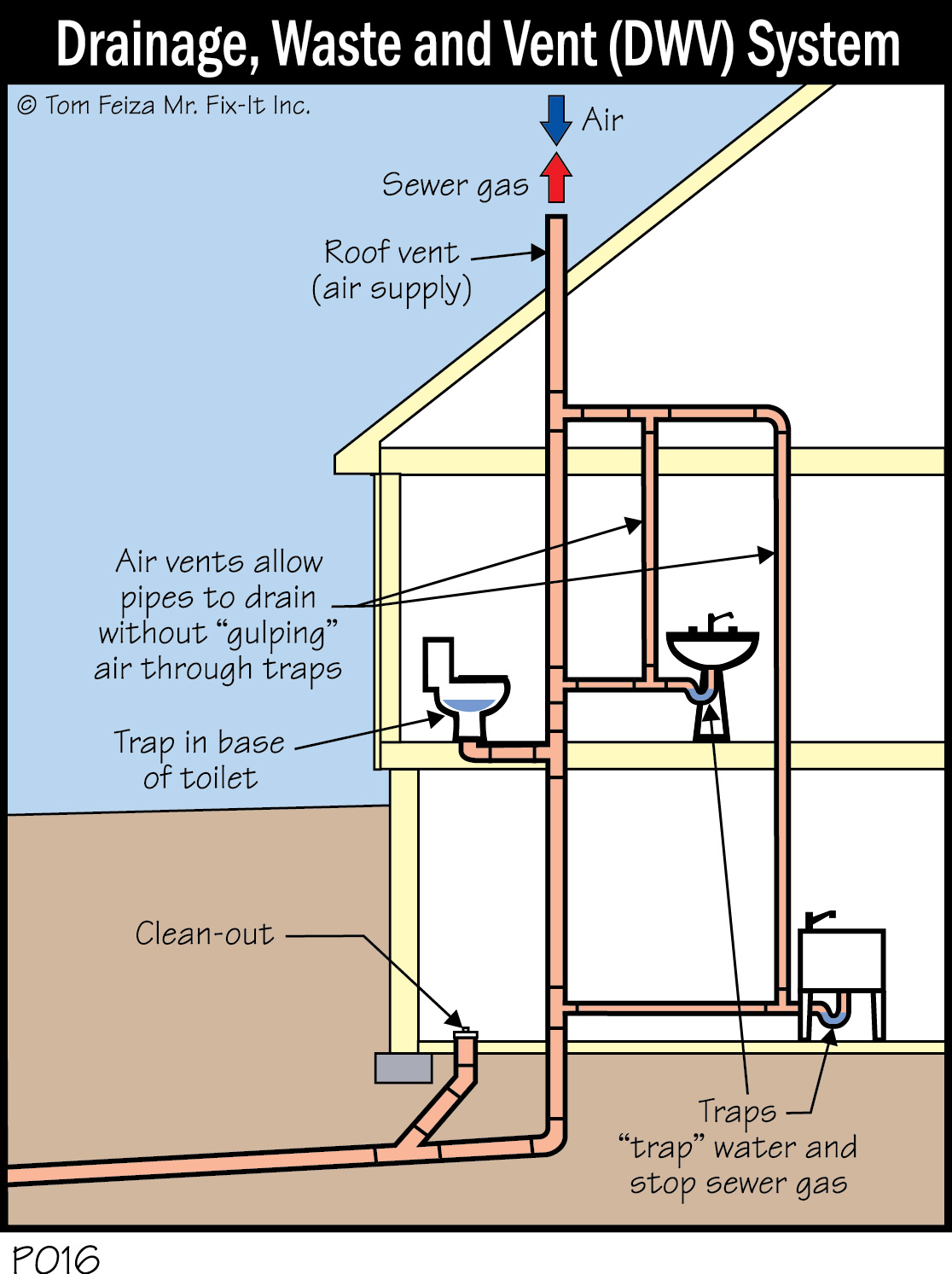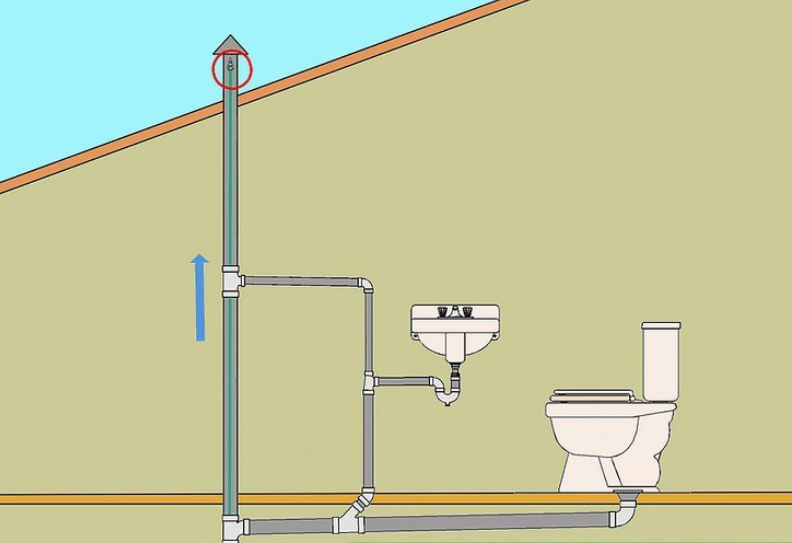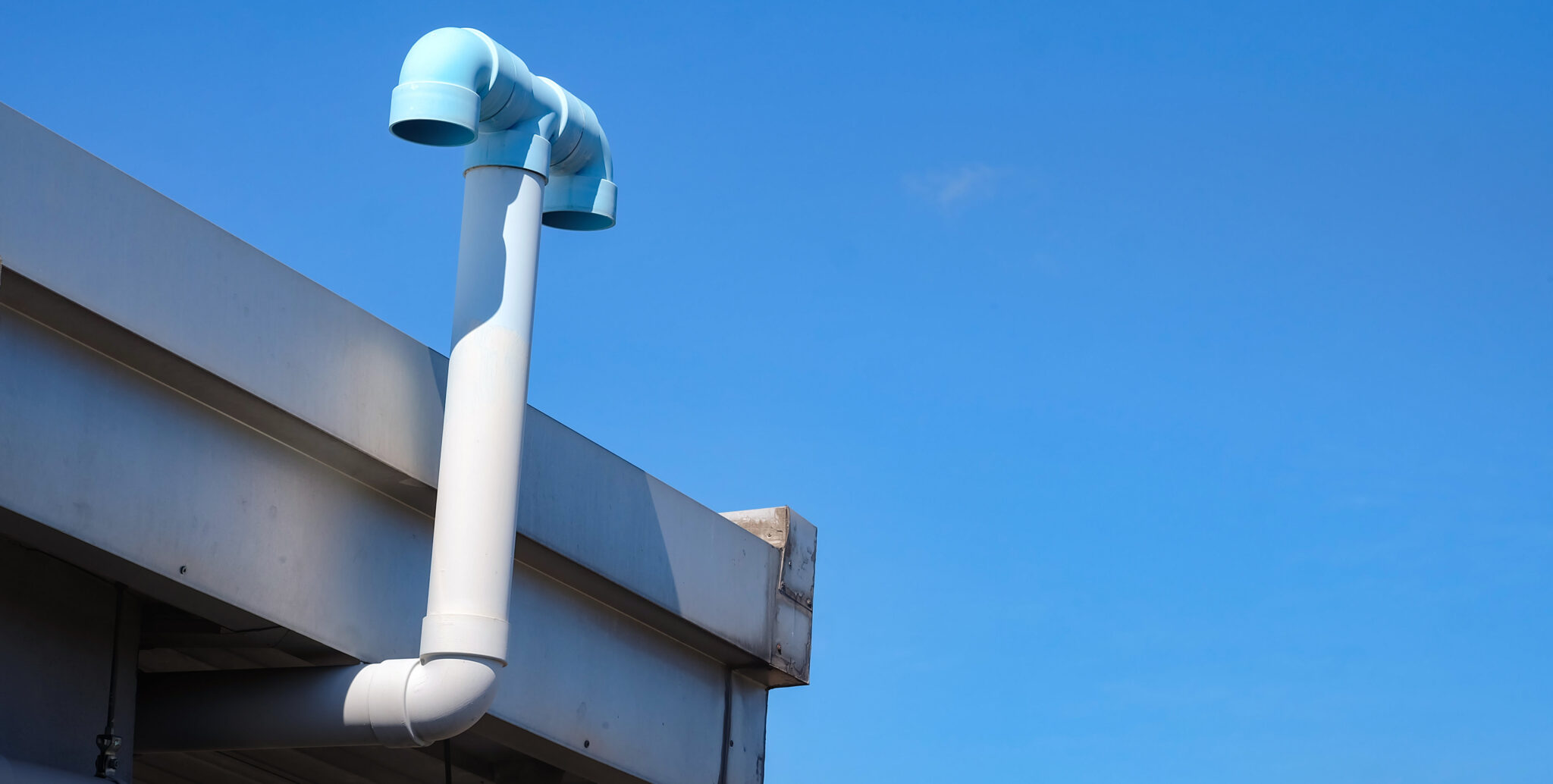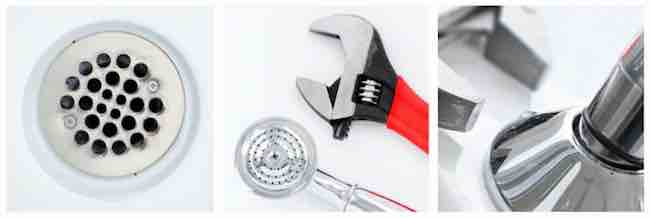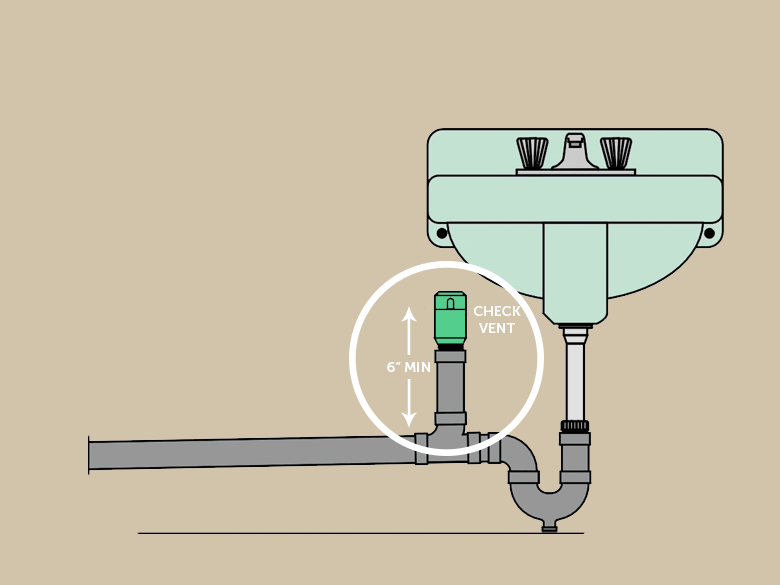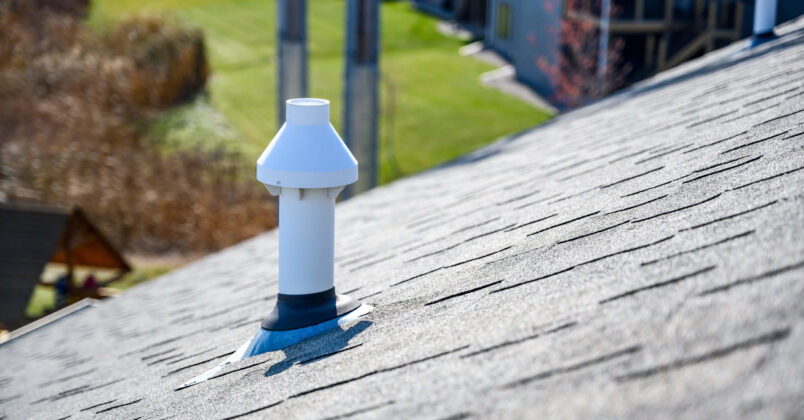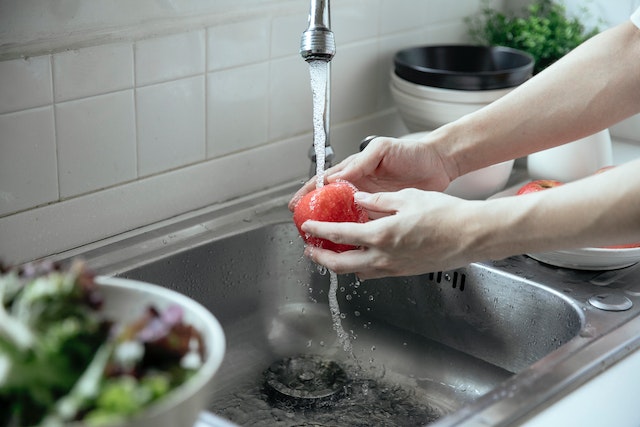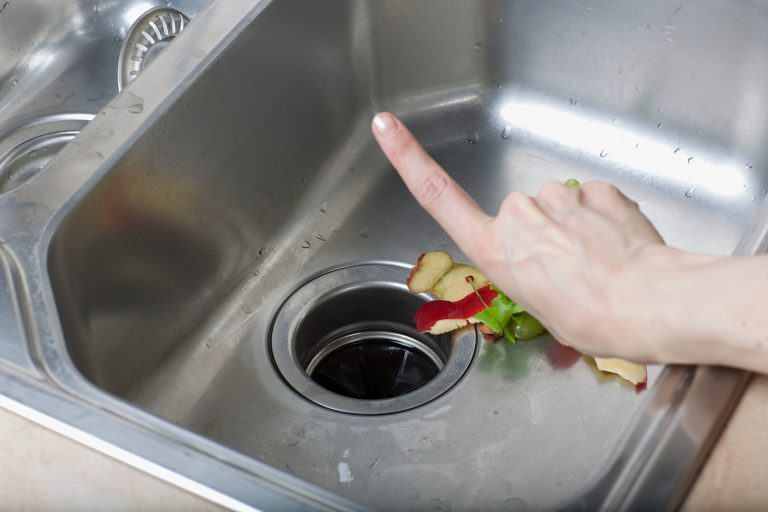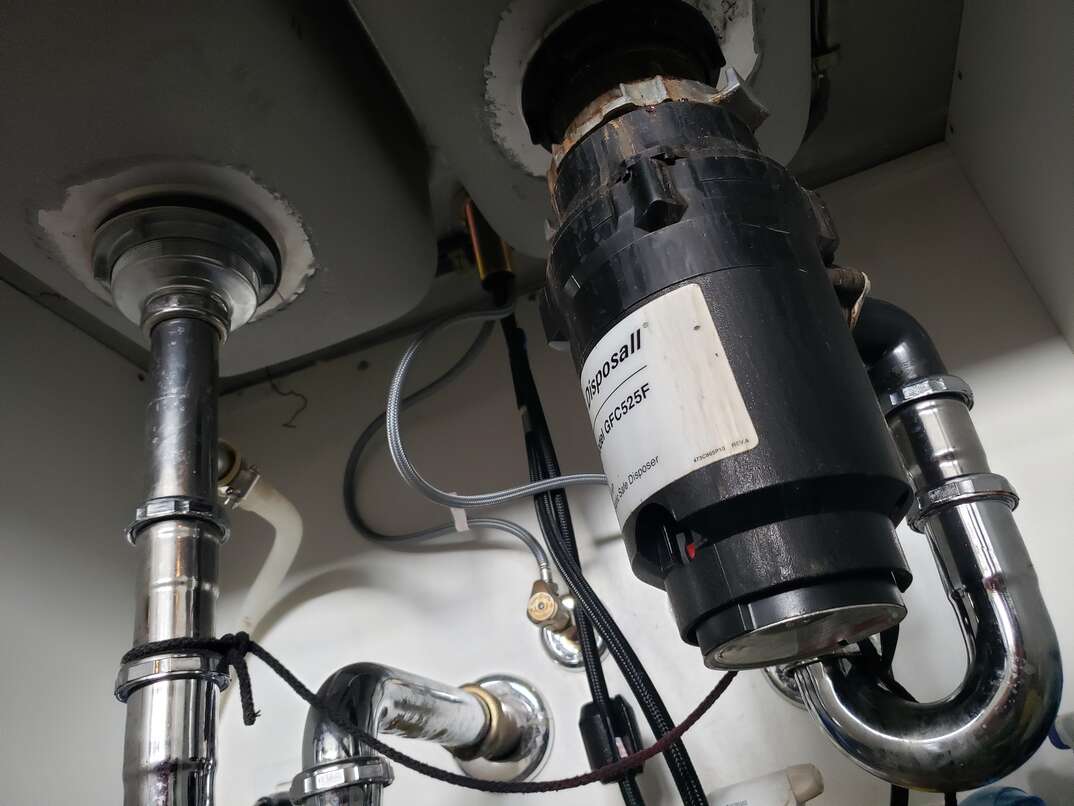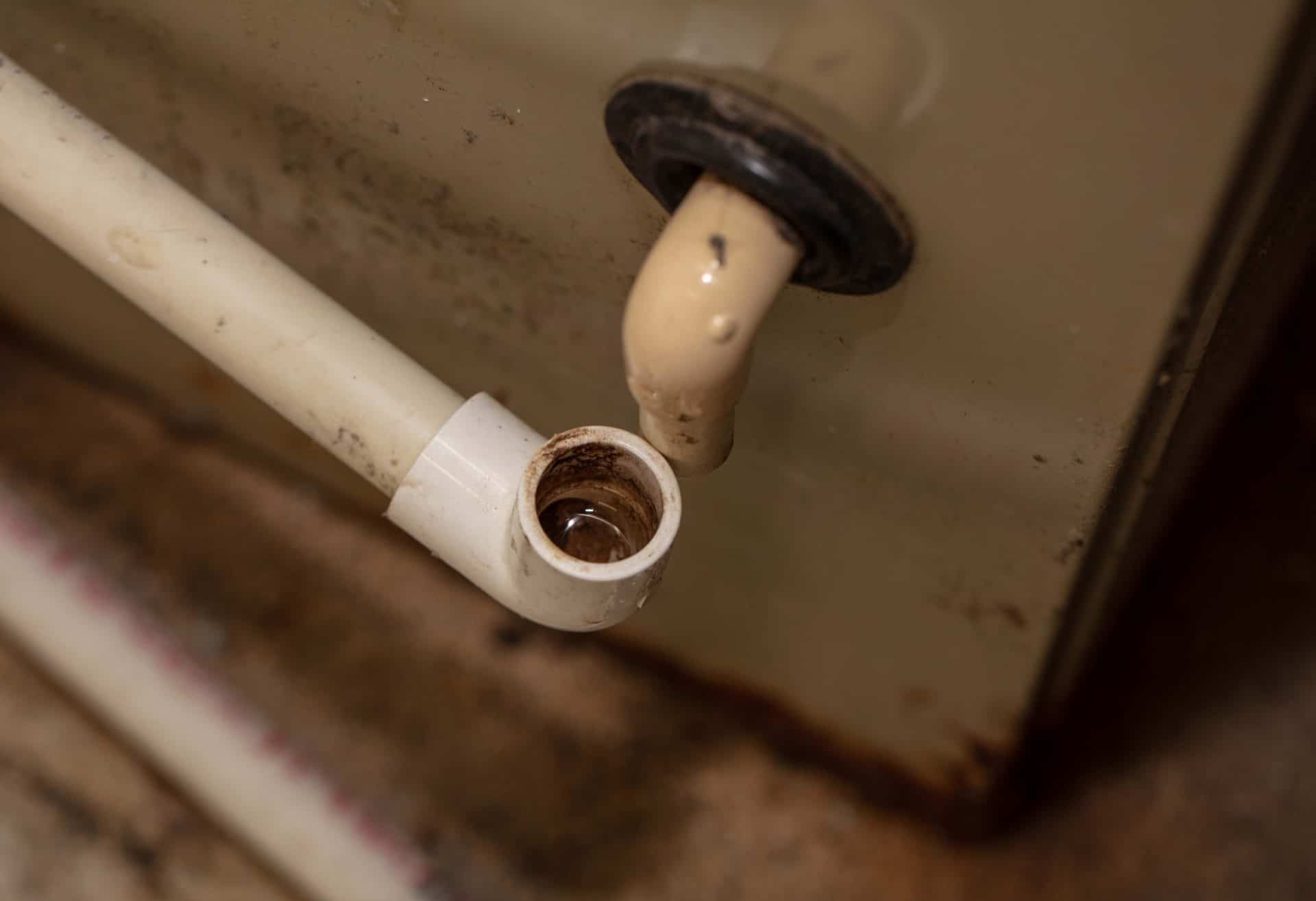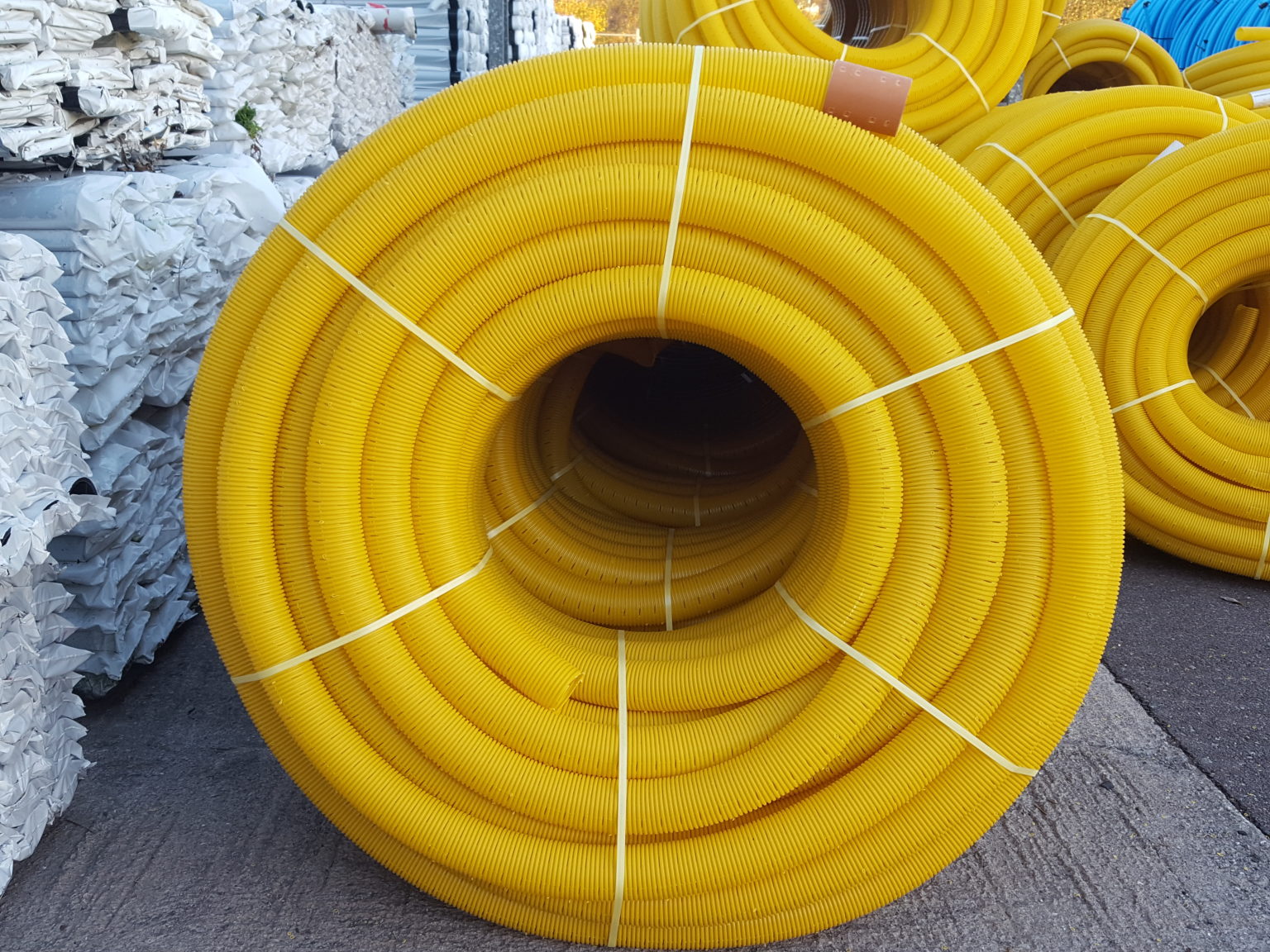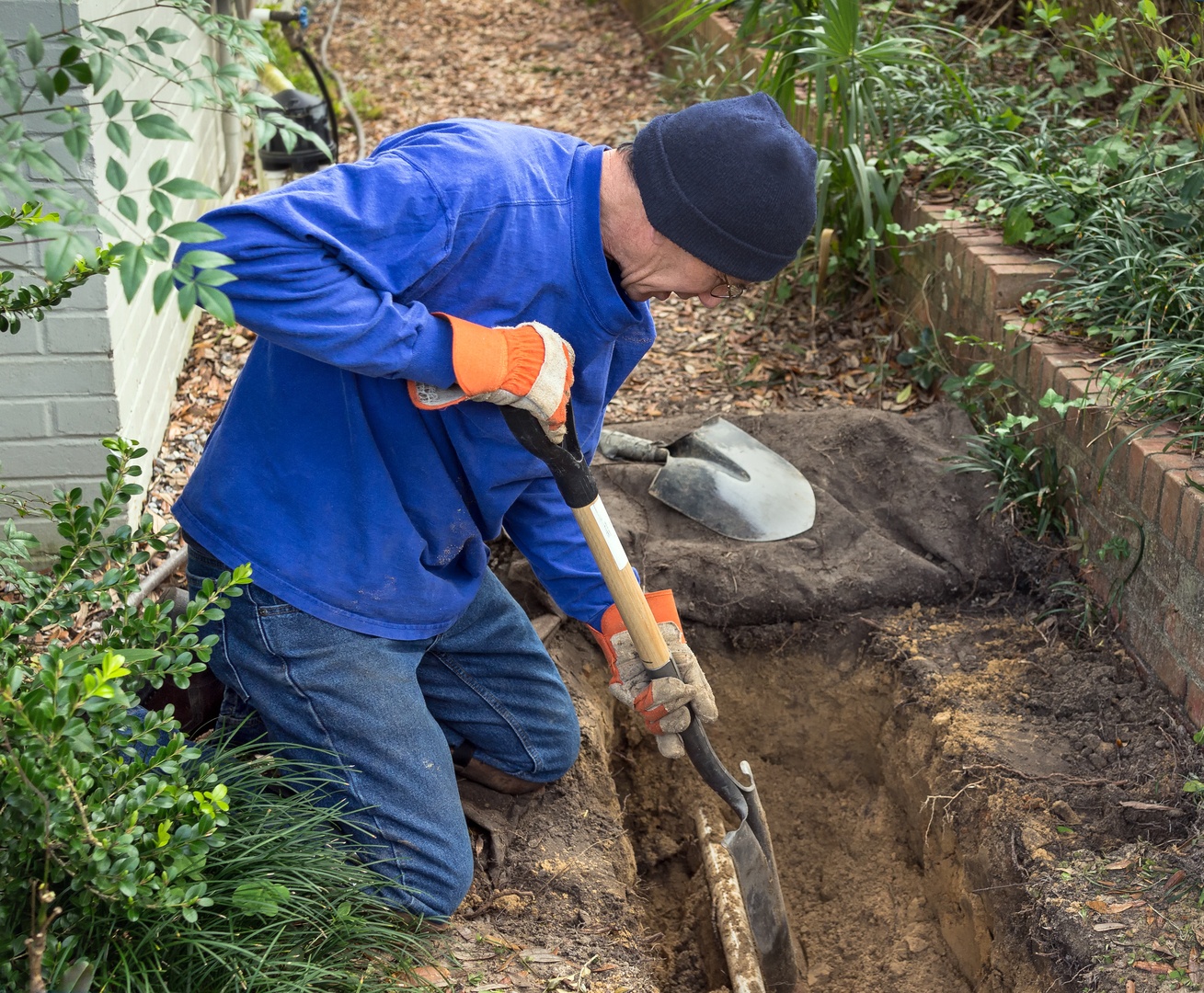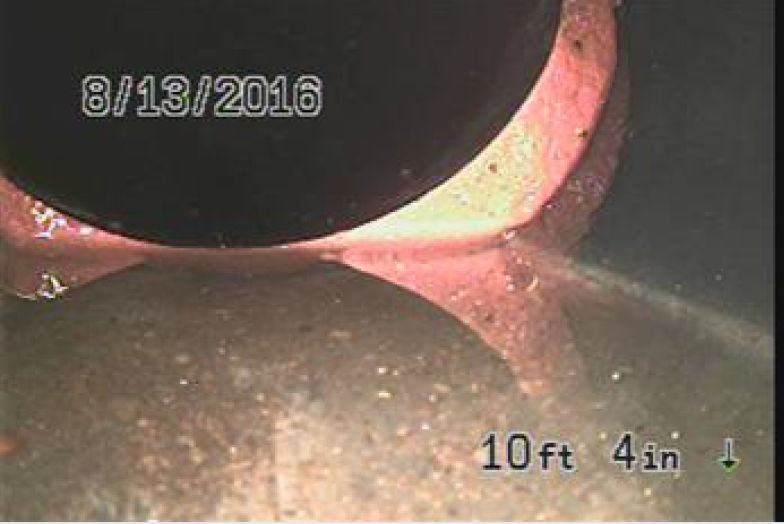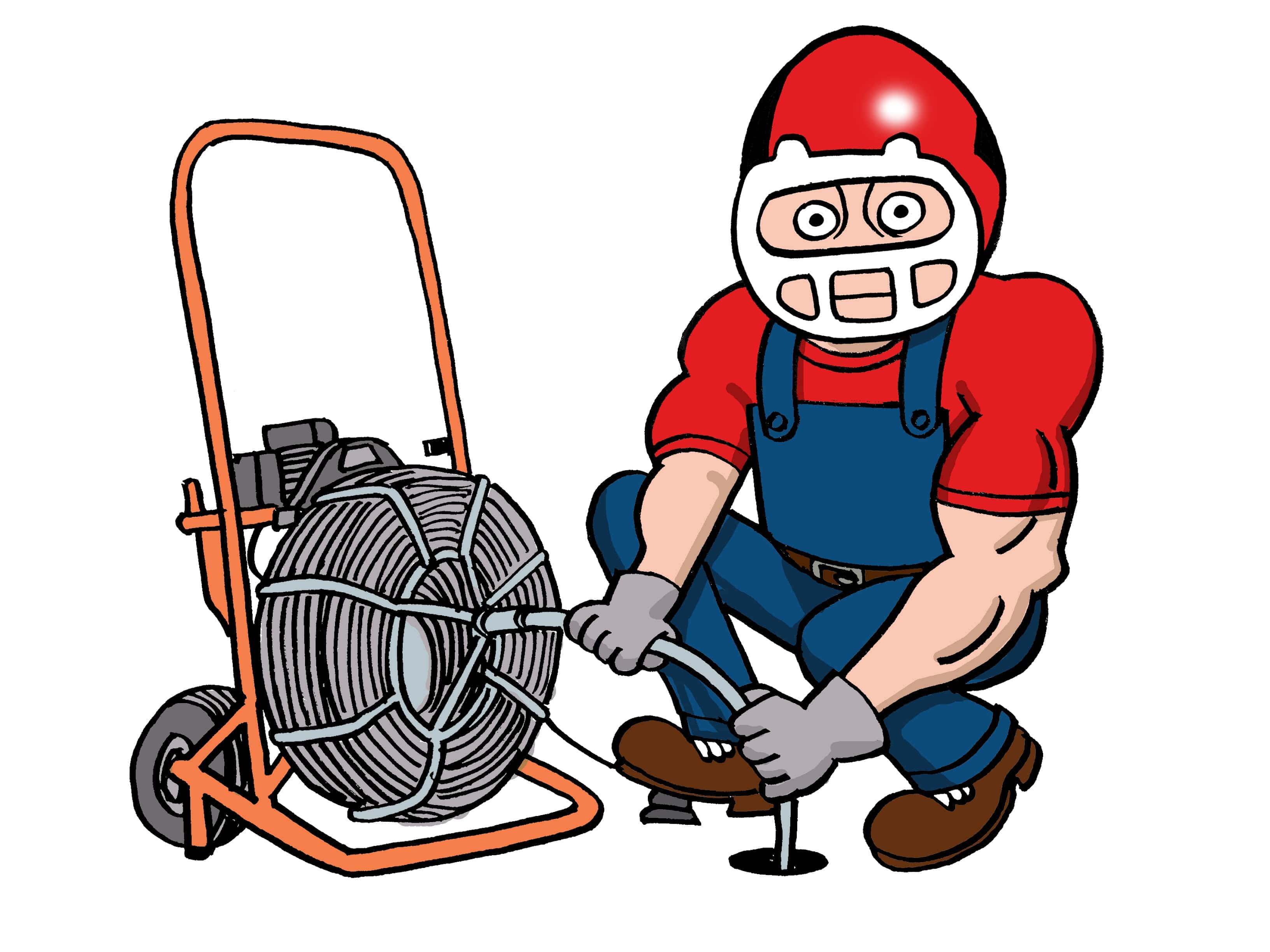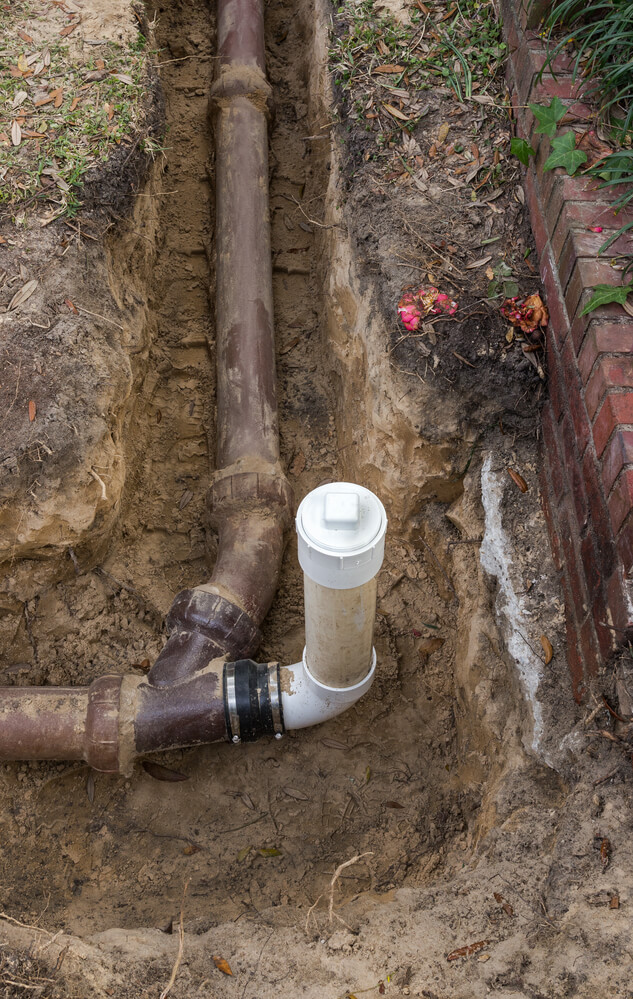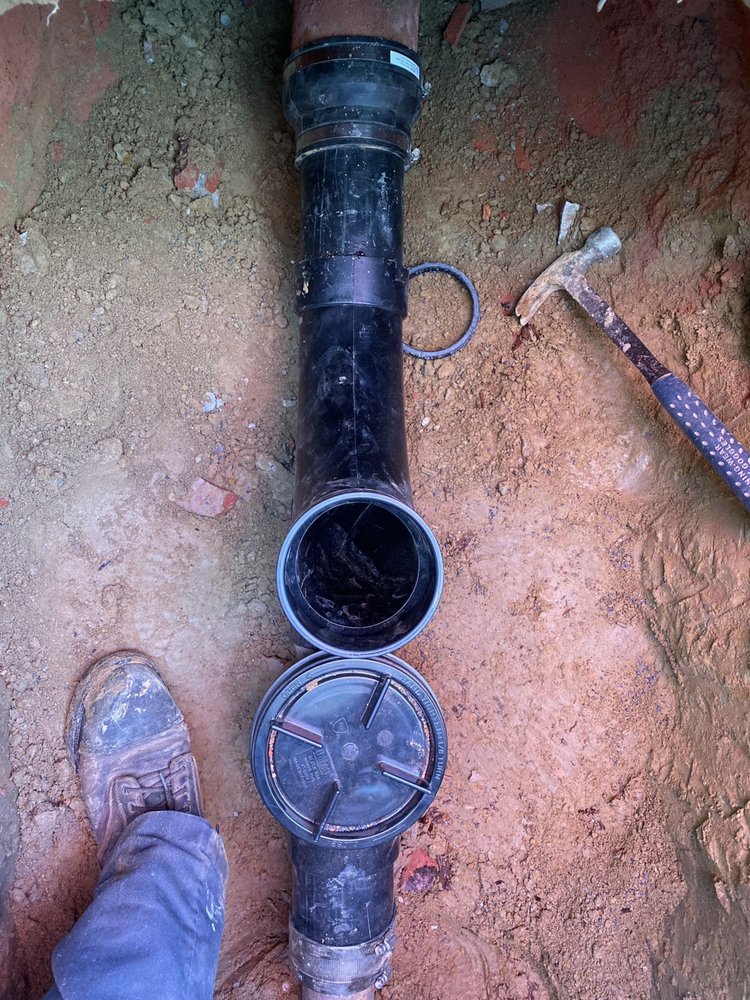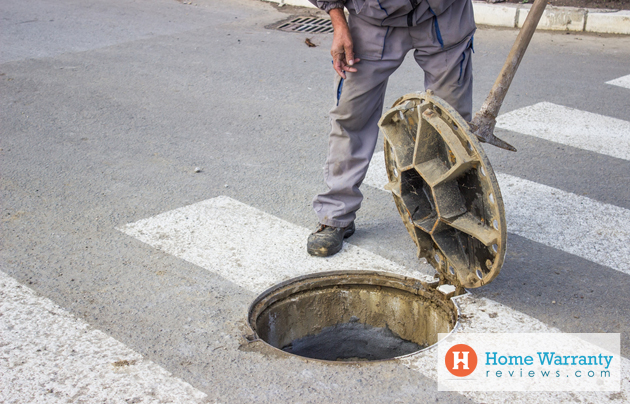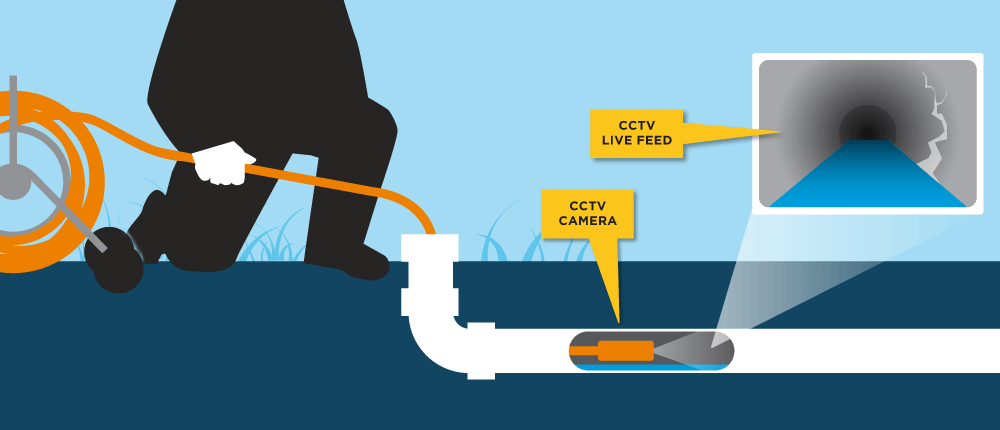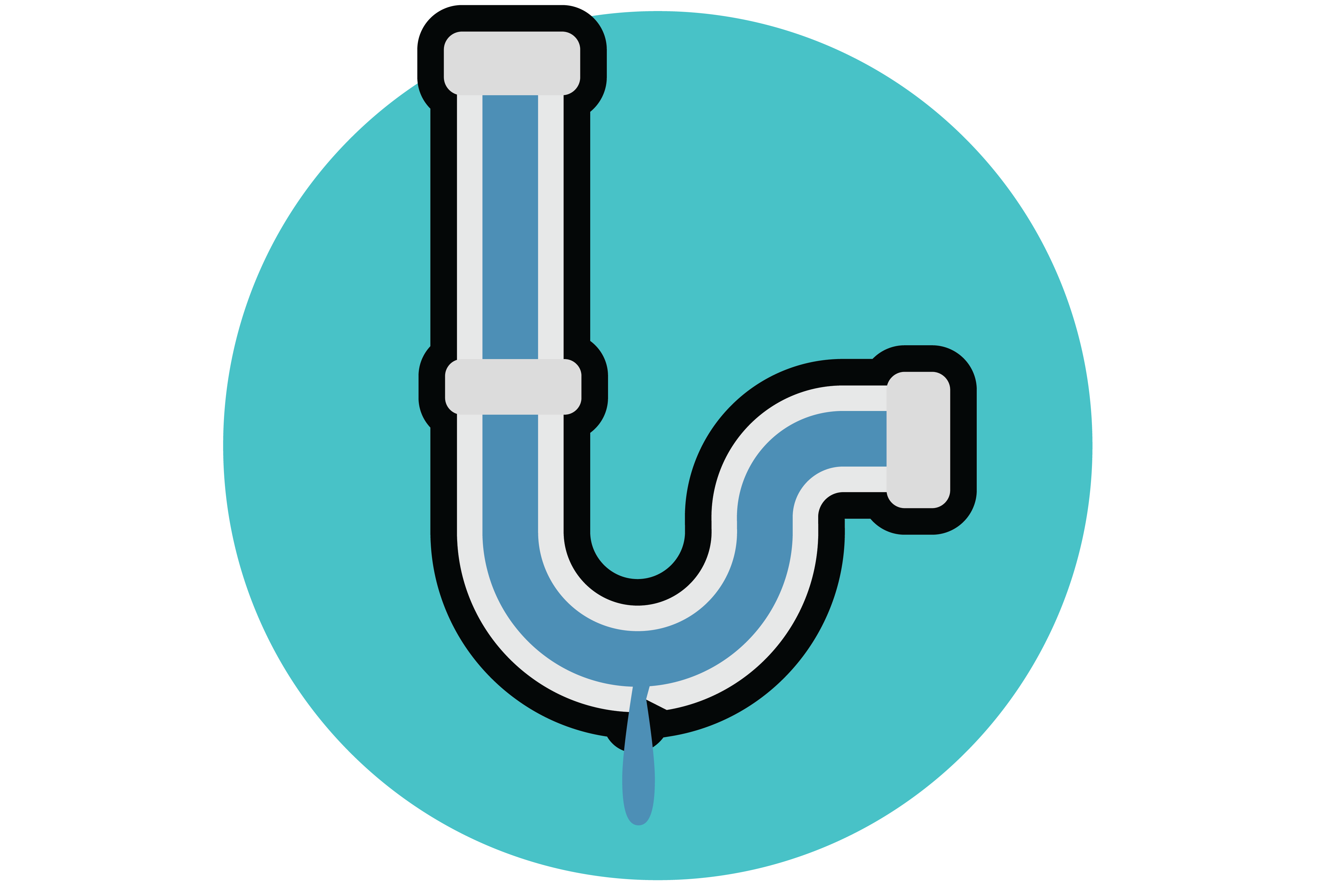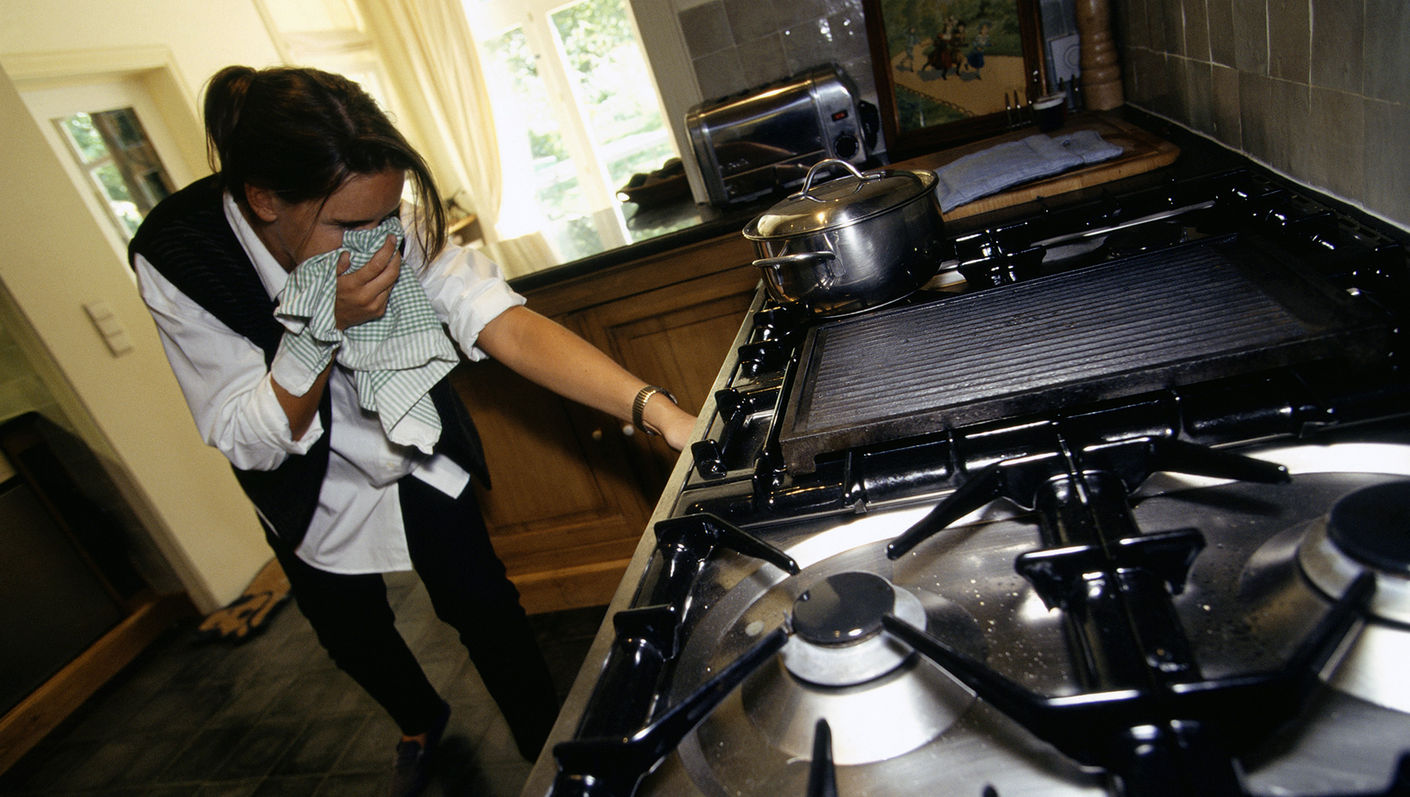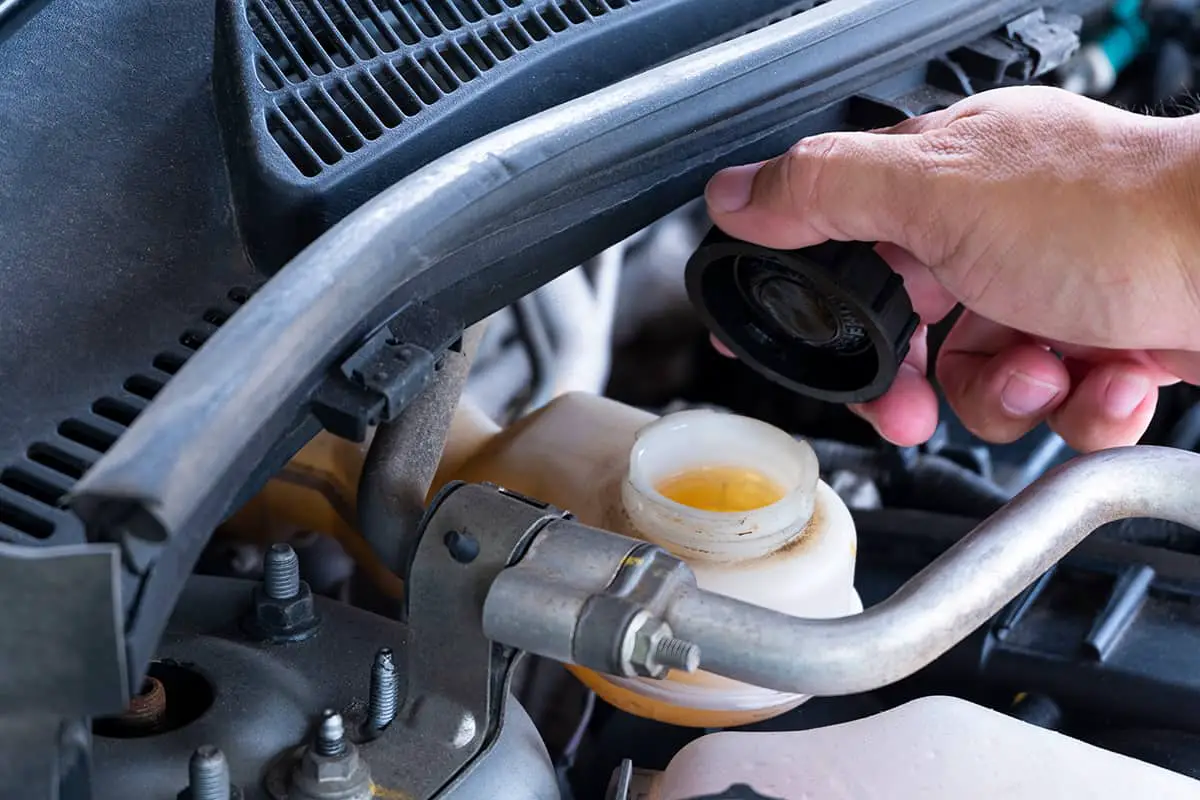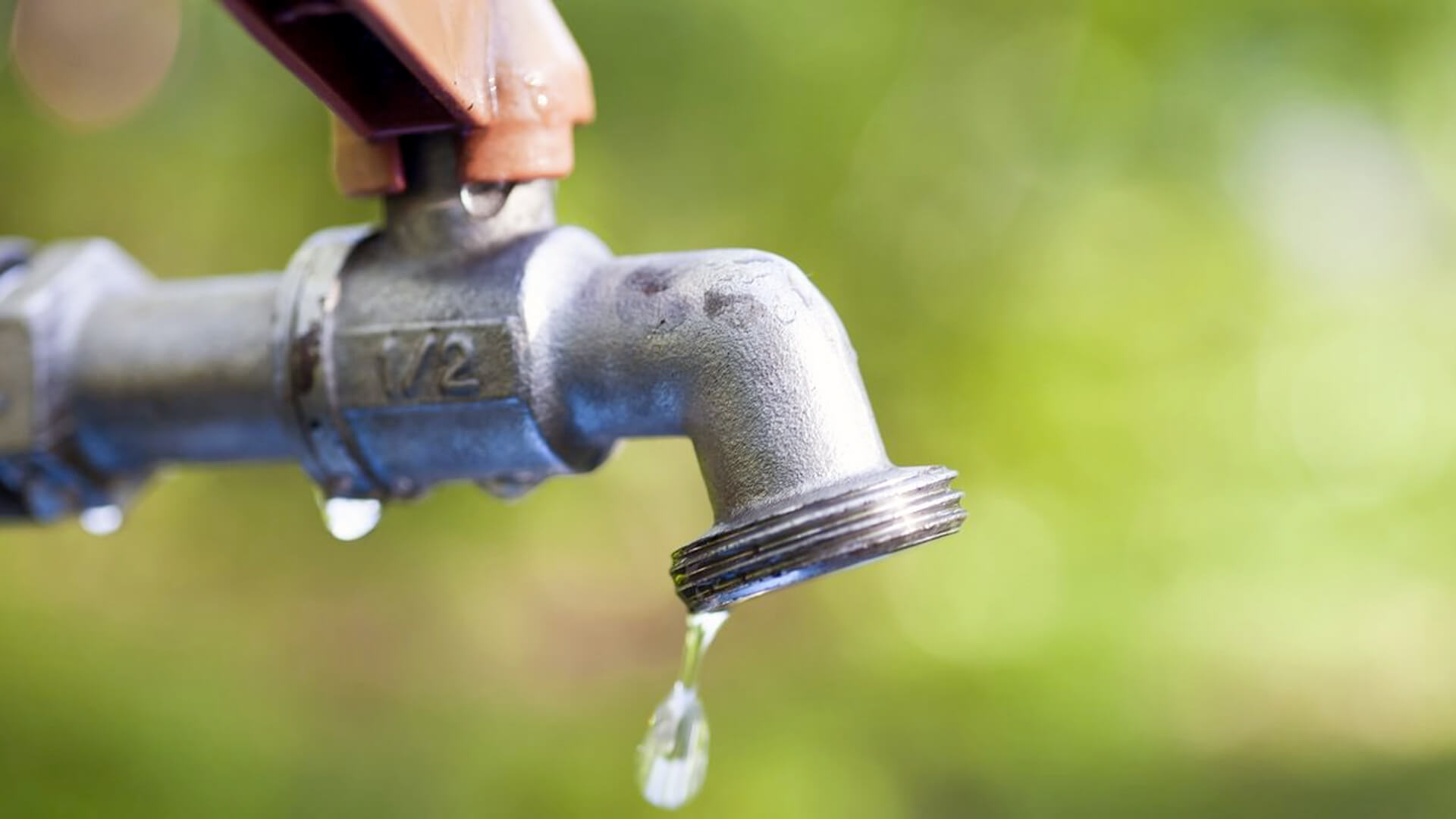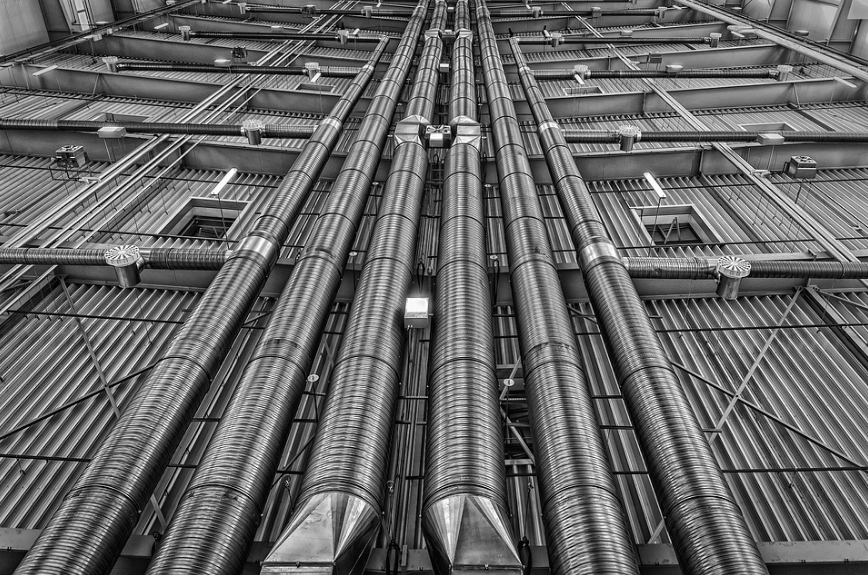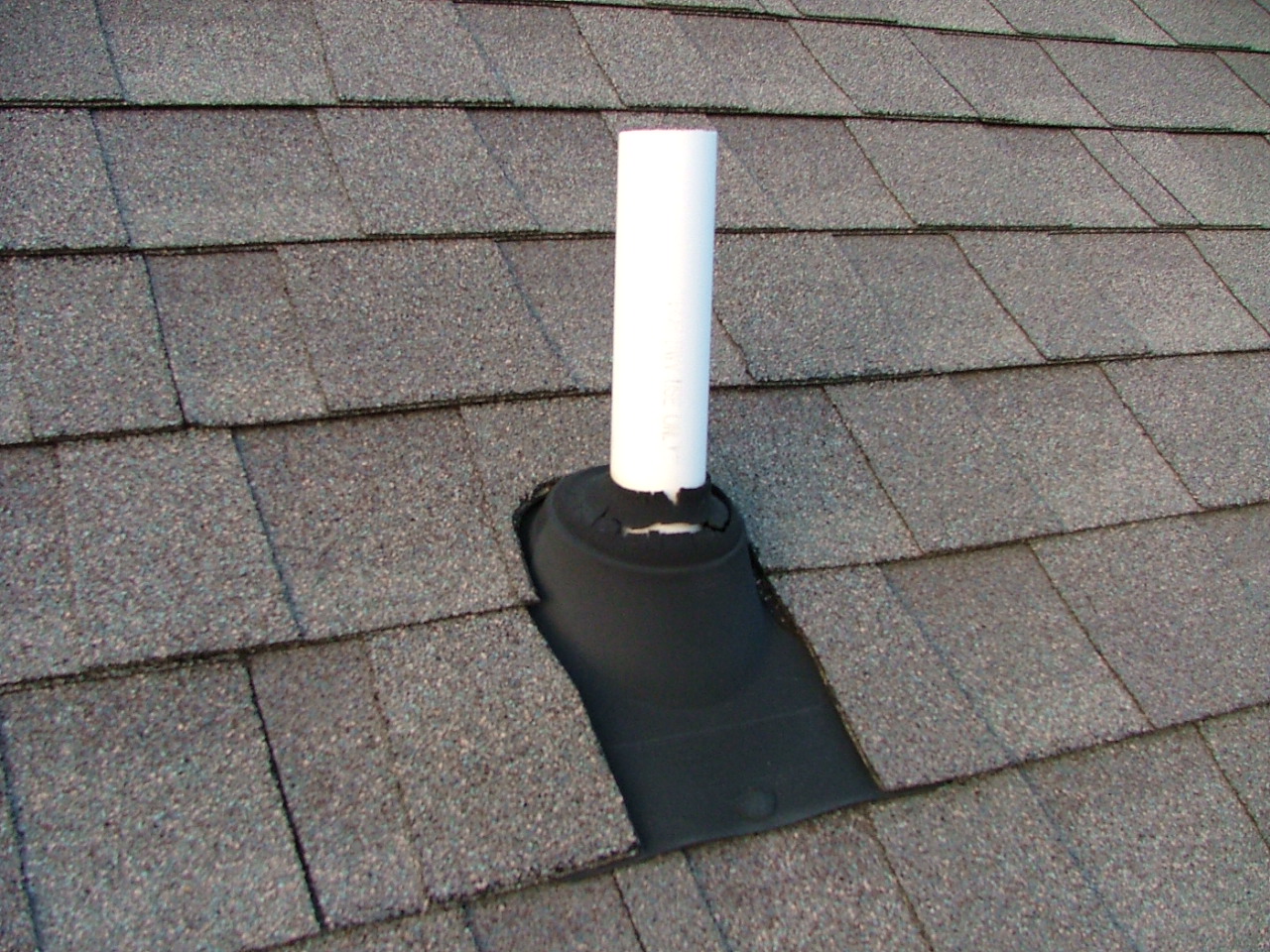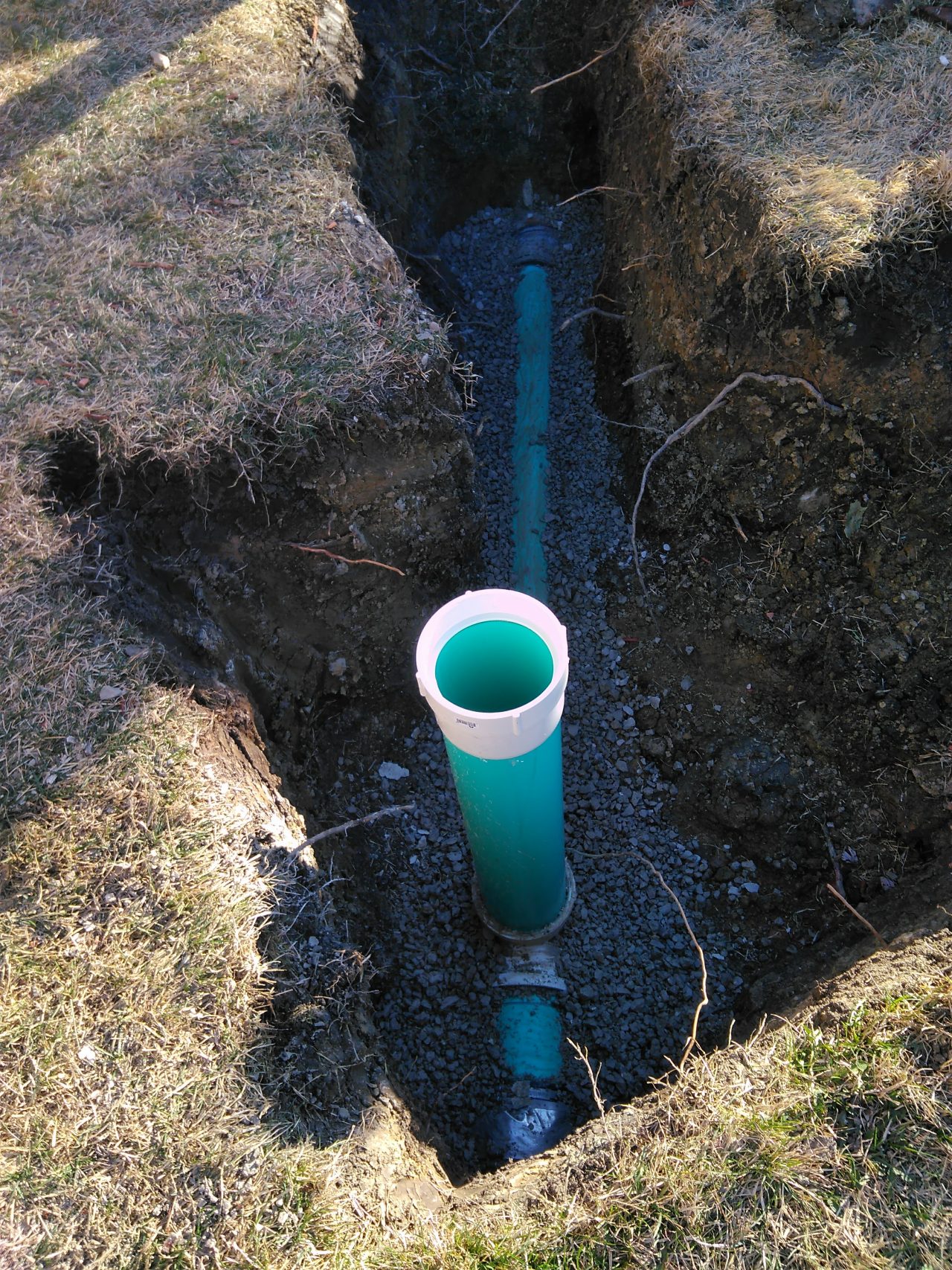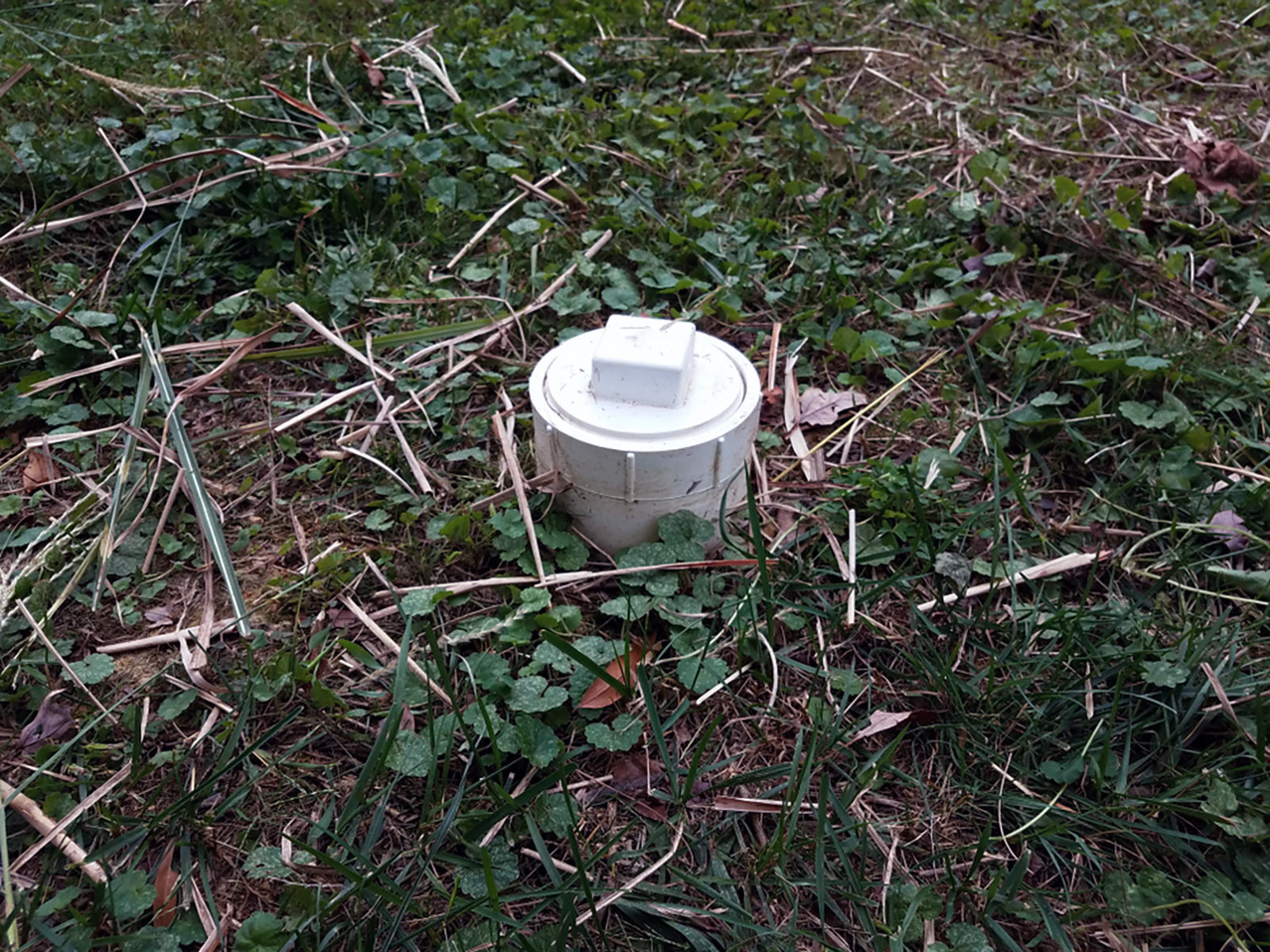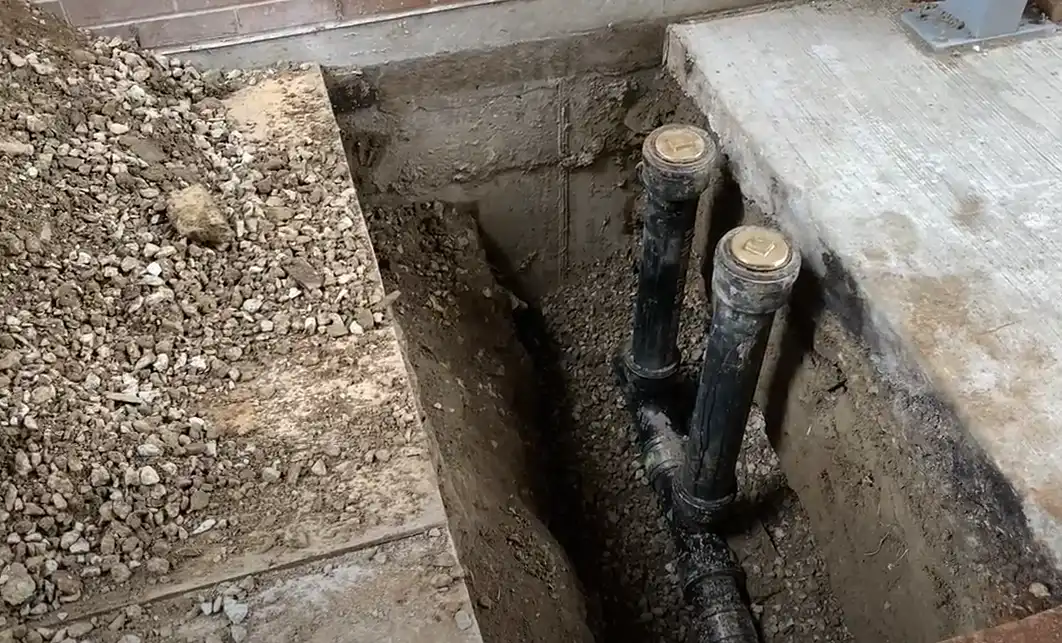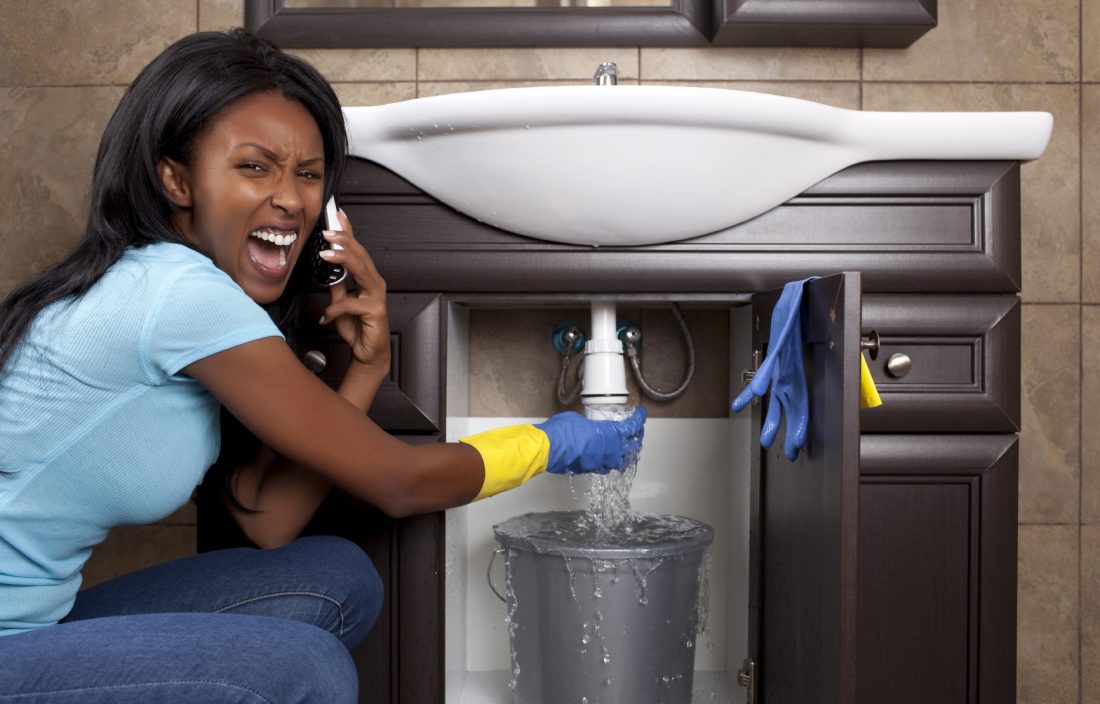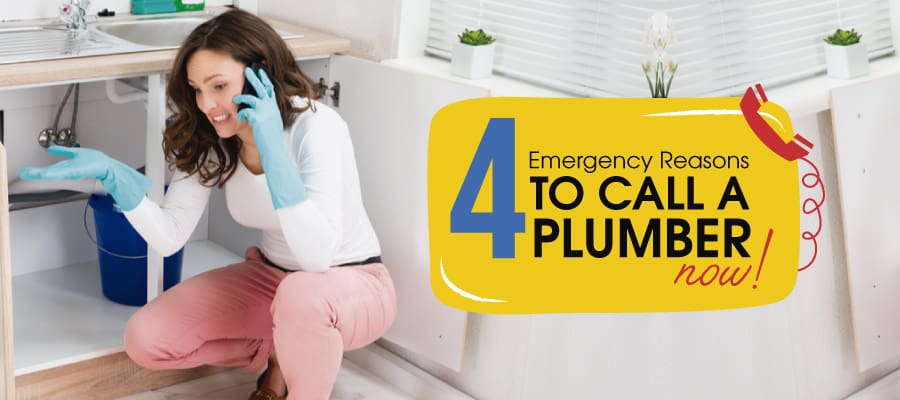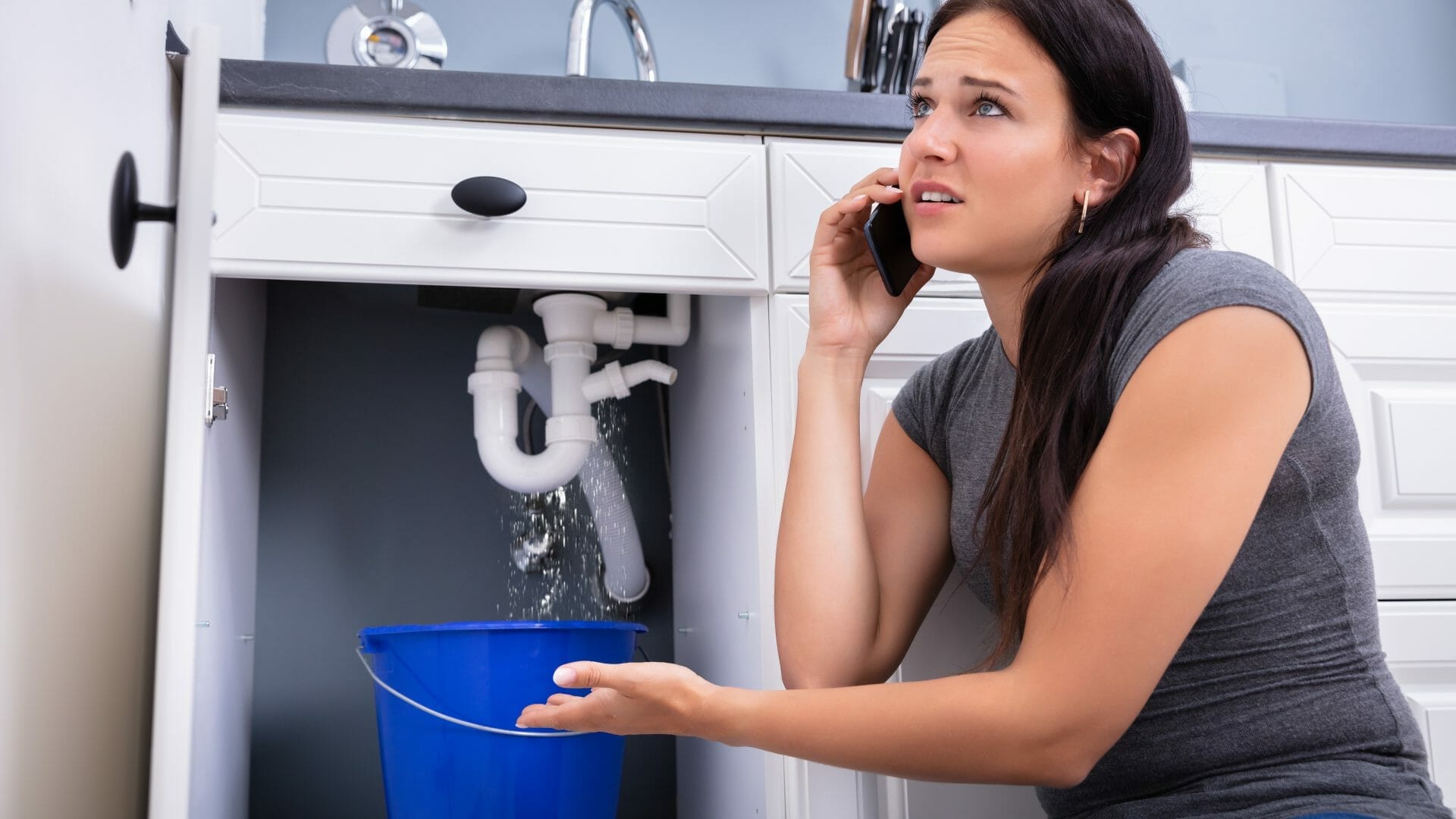If you notice a strong smell of sewer gas coming from your kitchen sink, the first thing you should check is the P-trap. This is a curved pipe under your sink that is designed to trap water and prevent sewer gas from entering your home. It's possible that the water in the P-trap has evaporated, allowing the gas to escape. Simply running some water down the drain should refill the P-trap and solve the issue.Check the P-trap
The vent pipe is another important component of your plumbing system that helps to prevent sewer gas from entering your home. It allows air to flow through the system and equalize pressure, preventing any gases from building up. If the vent pipe is clogged or damaged, it can lead to a buildup of sewer gas. You can check the vent pipe by climbing onto your roof and looking for any obstructions or damage.Check the vent pipe
If you have a garbage disposal in your kitchen sink, it can sometimes become a source of sewer gas odor. Food particles and debris can get stuck in the disposal and start to rot, producing a foul smell. To solve this issue, run some ice cubes and lemon peels through the disposal to clean it out and eliminate the odor.Check the garbage disposal
The drain line is the pipe that connects your kitchen sink to the main sewer line. If there is a crack or a loose connection in this line, it can cause sewer gas to escape into your kitchen. You can check this by running water down the drain and looking for any leaks or damage in the pipe.Check the drain line
If none of the above solutions solve the issue, it's possible that there is a problem with the main sewer line. This can be caused by tree root intrusion, a clog, or a break in the line. If you suspect this is the case, it's best to call a professional plumber to inspect and repair the sewer line.Check the sewer line
Leaks in your plumbing system can also lead to the smell of sewer gas in your kitchen. Check all of the pipes under your sink for any signs of leaks, such as water stains or puddles. If you find a leak, it's important to fix it immediately to prevent any further issues.Check for leaks
Clogs in your kitchen sink can also cause sewer gas to escape into your home. Use a plunger or a drain snake to try and clear out any blockages in the drain. If this doesn't work, it's best to call a professional plumber who can use specialized tools to clear the clog.Check for clogs
In addition to the main vent pipe, there are also smaller plumbing vents located throughout your home. These vents allow air to flow through the system and prevent the buildup of sewer gas. If these vents become clogged or blocked, it can lead to a strong smell of sewer gas in your kitchen. You can check these vents and clear any obstructions to solve the issue.Check the plumbing vents
The sewer line cleanout is a pipe that provides access to your main sewer line for cleaning and maintenance purposes. It's usually located outside your home and can be used to check for any issues in the main sewer line. If you notice any strong smells coming from this area, it's possible that there is a problem with the main line.Check the sewer line cleanout
If you've tried all of the above solutions and still can't get rid of the smell of sewer gas in your kitchen, it's time to call a professional plumber. They will have the expertise and tools necessary to diagnose and fix any issues with your plumbing system, ensuring that your kitchen is free of any unpleasant odors. Don't let the smell of sewer gas in your kitchen ruin your day. By following these tips and checking these common sources of the odor, you can eliminate the problem and enjoy a clean and fresh-smelling kitchen once again.Call a plumber
Why Do I Smell Sewer Gas in My Kitchen Sink?
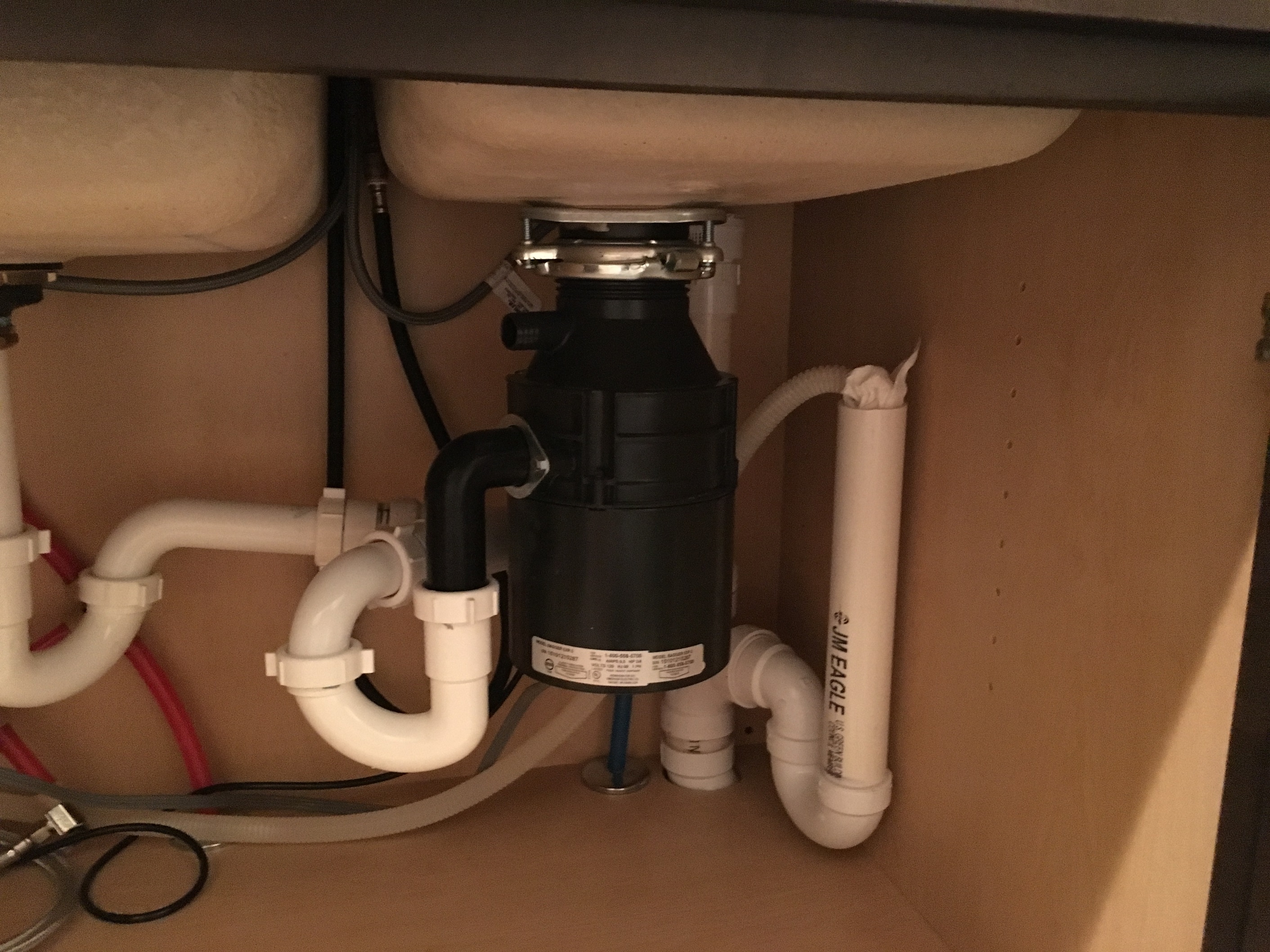
The Importance of Proper Plumbing in House Design
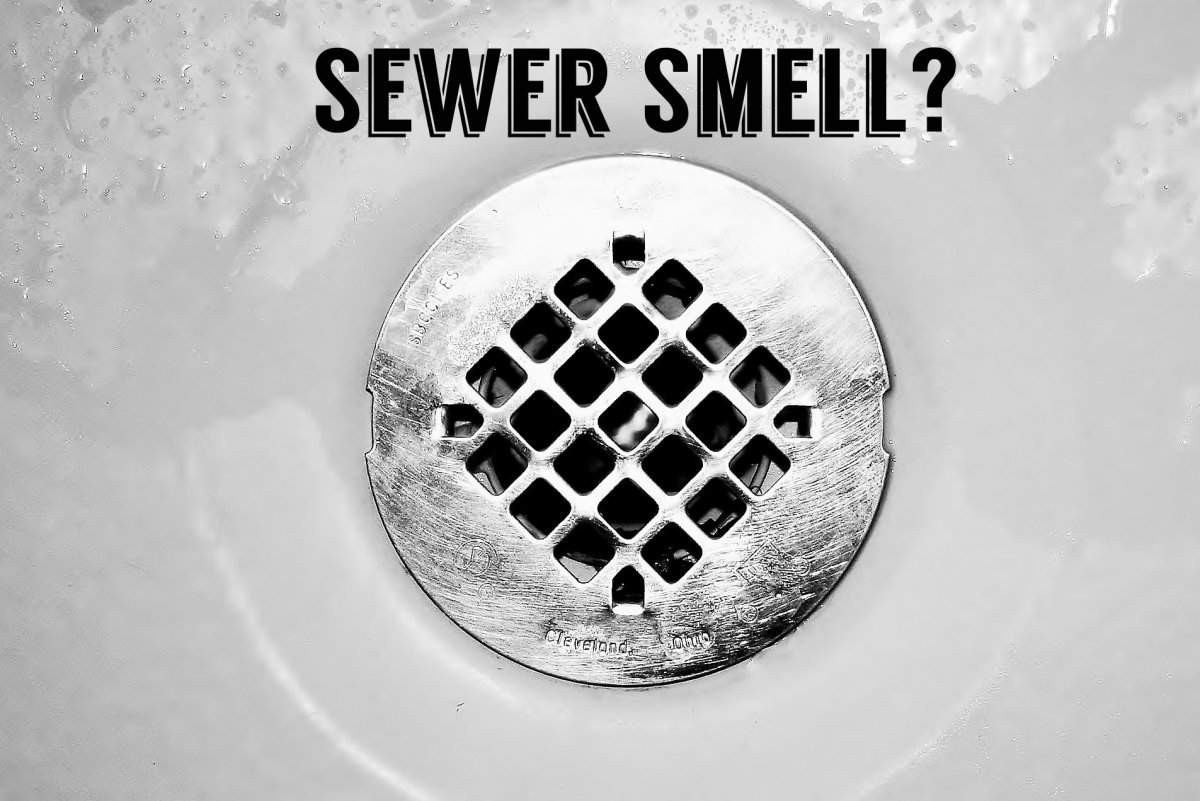 Sewer gas
is a common problem that many homeowners face, especially in their kitchen sink. The unpleasant odor is not only a nuisance but can also be a health hazard. So, why do you smell sewer gas in your kitchen sink? The answer lies in the
plumbing system
of your house.
Many people often overlook the importance of proper plumbing in house design. However, a well-designed plumbing system is crucial in maintaining a safe and healthy living environment. The main cause of sewer gas in your kitchen sink is often due to
improper ventilation
in your plumbing system. This allows the gases from your sewage to escape into your home instead of being properly vented outside.
Another common cause of sewer gas in your kitchen sink is a
leaky drain trap
. The drain trap is a curved section of pipe under your sink that is designed to hold water. This water acts as a barrier, preventing sewer gases from entering your home. However, if the drain trap is not properly sealed or is damaged, it can allow sewer gas to escape into your kitchen.
Old or damaged pipes
can also be a culprit for sewer gas in your kitchen sink. Over time, pipes can develop cracks or become corroded, allowing sewer gas to leak into your home. This is not only a health hazard but can also lead to more serious plumbing issues if left untreated.
To prevent and eliminate sewer gas in your kitchen sink, it is essential to have a
professional plumber
inspect your plumbing system. They can identify any issues and provide necessary repairs or replacements to ensure proper ventilation and airtight seals.
In addition to addressing any plumbing issues, there are also
preventative measures
that homeowners can take to keep sewer gas out of their kitchen sink. Regularly cleaning your drain traps and using a drain cover to catch debris can help prevent clogs and leaks. It is also important to avoid pouring grease or food scraps down your sink as they can clog pipes and cause unpleasant odors.
In conclusion, sewer gas in your kitchen sink is a common issue that can be easily prevented and solved with proper plumbing and maintenance. Don't overlook the importance of a well-designed plumbing system in your house design. Not only does it keep your home smelling fresh, but it also ensures the safety and health of you and your family.
Sewer gas
is a common problem that many homeowners face, especially in their kitchen sink. The unpleasant odor is not only a nuisance but can also be a health hazard. So, why do you smell sewer gas in your kitchen sink? The answer lies in the
plumbing system
of your house.
Many people often overlook the importance of proper plumbing in house design. However, a well-designed plumbing system is crucial in maintaining a safe and healthy living environment. The main cause of sewer gas in your kitchen sink is often due to
improper ventilation
in your plumbing system. This allows the gases from your sewage to escape into your home instead of being properly vented outside.
Another common cause of sewer gas in your kitchen sink is a
leaky drain trap
. The drain trap is a curved section of pipe under your sink that is designed to hold water. This water acts as a barrier, preventing sewer gases from entering your home. However, if the drain trap is not properly sealed or is damaged, it can allow sewer gas to escape into your kitchen.
Old or damaged pipes
can also be a culprit for sewer gas in your kitchen sink. Over time, pipes can develop cracks or become corroded, allowing sewer gas to leak into your home. This is not only a health hazard but can also lead to more serious plumbing issues if left untreated.
To prevent and eliminate sewer gas in your kitchen sink, it is essential to have a
professional plumber
inspect your plumbing system. They can identify any issues and provide necessary repairs or replacements to ensure proper ventilation and airtight seals.
In addition to addressing any plumbing issues, there are also
preventative measures
that homeowners can take to keep sewer gas out of their kitchen sink. Regularly cleaning your drain traps and using a drain cover to catch debris can help prevent clogs and leaks. It is also important to avoid pouring grease or food scraps down your sink as they can clog pipes and cause unpleasant odors.
In conclusion, sewer gas in your kitchen sink is a common issue that can be easily prevented and solved with proper plumbing and maintenance. Don't overlook the importance of a well-designed plumbing system in your house design. Not only does it keep your home smelling fresh, but it also ensures the safety and health of you and your family.



